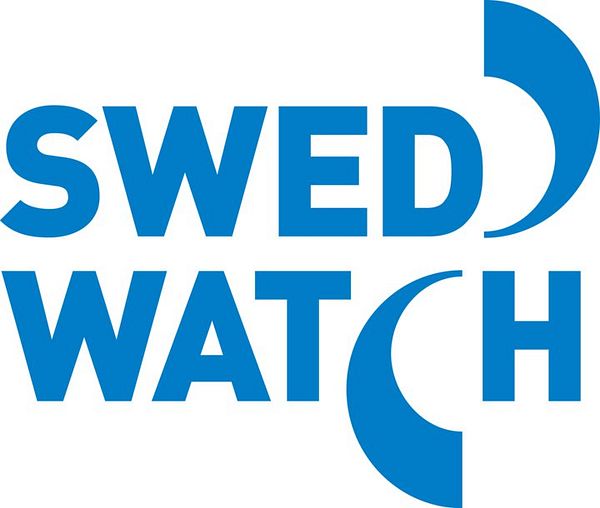Pressmeddelande -
Swedwatch: Updated OECD Guidelines demand more from companies
Today an updated version of the OECD Guidelines for Multinational Enterprises, adopted by OECD member countries, has been published. It has been over ten years since the last update, and the guidelines now place stronger requirements on companies on several areas, including the environment and climate. The new guidelines are welcomed by Swedwatch, which has contributed to provide input on their content.
-We welcome that the guidelines now encompass the environment and climate, and that it has been clarified that they apply throughout the value chain, something that was missing before, says Malena Wåhlin, responsible for Swedwatch's work on human rights defenders and a member of the OECD Watch coordination committee.
The OECD Guidelines for Multinational Enterprises cover a range of areas such as human rights, transparency, and corruption, and have been in place since 1976. They have been updated several times, and in 2011 a new chapter on human rights was added. Today, an updated version with several changes has been published. As a member of OECD Watch, Swedwatch has contributed with input on what the new guidelines should include.
The guidelines clarify that companies should analyze their impact on human rights through a due diligence process. This involves companies regularly gathering information about human rights risks from various sources, including civil society and those at risk of being affected. Now, risks related to a company's impact on climate, biodiversity, and pollution should also be included, something that Swedwatch and other organizations have advocated for.
-Impacts on the environment are closely linked to impacts on human rights. They cannot be separated. Therefore, this is a step in the right direction, says Malena Wåhlin.
The updated guidelines emphasize that companies must consider risks related to digitalization and technology, as well as respect the rights of workers throughout the whole value chain, not just their own employees.
The updated guidelines also explicitly state that companies must not negatively impact the rights of human rights defenders, and that companies should engage in consultation with those that might be negatively affected by their operations.
The OECD guidelines are not legally binding for companies, but are binding for signatory states, which are obligated to establish so-called national contact points, NCP:s. Companies that violate the guidelines can be reported to these contact points.
One ongoing case involves Aker BP and its major owner, Aker ASA. Swedwatch and seven other NGOs have filed a complaint against them for failing to comply with the OECD guidelines for multinational enterprises in their acquisition of Lundin Energy's oil and gas assets.
The complaints are filed with OECD’s NCP in Norway, and state that the buying companies did not perform any analysis on how the acquisition of Lundin Energy's assets affects those impacted by the company’s operations during the civil war in Sudan, or their chances of receiving remedy.
According to OECD Watch, many national contact points are not functioning effectively. For example, a review conducted by OECD Watch some years ago revealed that the Swedish contact point was less efficient in many areas compared to the NCP´s in the rest of the Nordic countries. A recent evaluation by the OECD of the Swedish NCP also showed weaknesses.
-We would have liked to see clearer requirements for strengthening the national contact points, as many of them lack sufficient resources, the Swedish NCP included. Without a real possibility to exert pressure on companies that violate the guidelines, they risk becoming useless for rightsholders. The wording on the rights of indigenous peoples could also have been stronger, says Malena Wåhlin.
The new guidelines come into effect on the 8th of June 2023.
FACTS
About the OECD Guidelines for Multinational Enterprises on Responsible Business Conduct
The OECD Guidelines for Multinational Enterprises, newly renamed OECD Guidelines for Multinational Enterprises on Responsible Business Conduct, are not binding for companies, but for OECD member countries, which are obligated to ensure that the guidelines are implemented. This includes setting up national contact points where companies that violate the guidelines can be reported.
The requirements placed on companies regarding human rights and the environment are based on the expectation that they should conduct so-called human rights due diligence to identify and mitigate risks throughout the whole value chain. The guidelines are based, among other things, on the UN Guiding Principles on Business and Human Rights. The OECD has also developed sector-specific guidance for companies in industries such as mining, agriculture, and the textile sector.
The guidelines have been developed by the working party on responsible business conduct and is released by the OECD Investment Committee.
More information to be found here:
Revised OECD Guidelines released today – Questions and Answers - Swedwatch
About OECD Watch
Swedwatch is a member of OECD Watch, a global network of civil society organisations with more than 130 members in over 50 countries. OECD Watch’s key aim is to inform and advise the global NGO community on how to use the OECD Guidelines for Multinational Enterprises and its associated grievance mechanism to achieve corporate accountability and access to remedy for individuals harmed by corporate misconduct.
Relaterade länkar
Ämnen
Kategorier
Swedwatch är en ideell och politiskt obunden researchorganisation. Vårt mål är att företag, investerare och stater ska ta ansvar för mänskliga rättigheter och miljö och att rättighetsinnehavare kan göra sina röster hörda.

